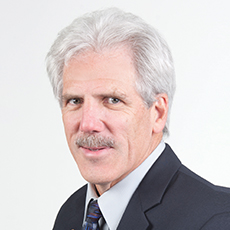October 14, 2014
Landscape architecture and regional & community planning department hosts colloquium

The landscape architecture and regional & community planning department will host its second colloquium of the 2014-2015 colloquium series at 4:30 p.m. Friday, Oct. 17, in 106c Seaton Hall. Chip Winslow, professor landscape architecture/regional & community planning, will present "Kansas State University Trees: Documentation of Campus Ecosystem Services."
The colloquium will explore Winslow's recent research conducted while he was on sabbatical in the spring 2014 semester. It is open to the public.
Colloquium description: Trees serve as an important natural resource to a university campus. As one of many contributions to the unique identity and character of the university setting, trees provide scenic value. As an integral component to a multifunctional landscape, trees provide multiple ecosystem services. These include biofiltration for stormwater management, shade for human comfort and energy savings, and habitat for wildlife. Documentation of tree locations and characteristic details such as species, size, trunk diameter and physical condition is critical to the management of the tree resource for aesthetic, economic and ecological purposes.
This study identifies the technological advances in methods for collecting data and producing tree inventories. Specifically, research objectives aim to describe the tools, data fields and progression required to update the existing K-State campus tree inventory. As an integral component of the K-State Master Plan, a catalog of existing tree locations and associated characteristics connects campus planning with the surrounding community of Manhattan. Methods employing state-of-the-art technology provide a database of information accessible to students and faculty for a broad range of valuable research projects. Additionally, database and ecosystem services information can be made available to local residents wanting to learn more about the trees within the campus environment.
